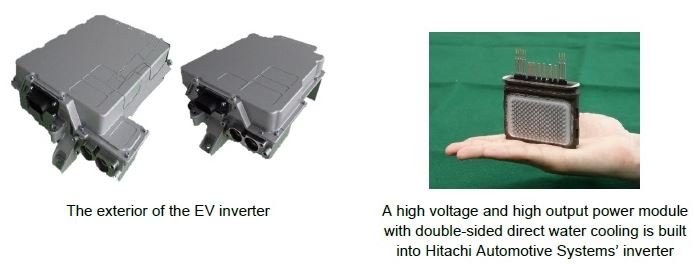Globally, the adoption of electric vehicles has been expanding in line with tightening environmental regulations. The European Union (EU) has made it mandatory to reduce average CO2 emissions from 120.5g/km in 2018 to below 95g/km by 2021. In China, automakers are also accelerating promotion of EVs, plug-in hybrid electric vehicles (PHEVs) and others, as they are required to comply with the New Energy Vehicle (NEV) credit policies that have been implemented starting 2019.
As most EVs are based on a 400-volt system, in order to increase the vehicle's driving range, additional batteries with parallel connection are required. This results in increasing the battery capacity but also the charging time. However, an 800-volt system enables the battery to be charged with the necessary amount of energy over a short period, allowing for fast charging of high capacity batteries. To make the 800-volt system possible, Hitachi Automotive Systems undertook a complete review of its inverter insulation structure to develop a compact power module with double-sided cooling and new high voltage insulation heat dissipation mounting technology. Compared to the previous generation of inverters, the solution delivers twice the voltage at 800 volts and 94.3kVA/L, equating to 2.7 times higher power density.
Hitachi Automotive Systems is committed to assisting the further adoption of electric vehicles by automotive manufacturers, and contributing to global environmental conservation by continually enhancing our electric motors, inverters, and other electric powertrain systems.

